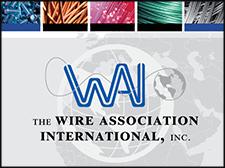Leading OEMs Discuss How Collaborative Robots & Automation Technologies Shape Automotive Manufacturing
Future Directions For Changeover, Traceability, New Materials, Joining Techniques As Well As Data Management & Controls Architecture.
Next-Generation Collaborative Robots & Automation Technologies Automotive Manufacturing 2016
Next-Generation Collaborative Robots & Automation Technologies Automotive Manufacturing will assess the commercial benefits of implementing new robotics & automation technologies on production efficiency, cost and profitability.
The automotive manufacturing industry is no stranger to automation and robotics. However, what the industry is now witnessing is an influx of next-generation collaborative robots and automation technologies - technologies that are going to be provided at a lower cost than what the industry is used to, whilst driver safer, faster and more profitable manufacturing and maintaining a solid life-cycle.
Featuring key decision makers from Ford, General Motors, Subaru, Honda, Toyota, Nissan and more!
Key Focus Areas:
Where does automation make sense?
How to comply with global safety regulations
How to implement collaborative robots
Verifying robot safety
Error proofing & digital defect detection
How flexible are assembly lines to handle new product?
Managing changing controls architecture
Collecting and utilizing data
And more!
This two-day information packed agenda will deliver the latest OEM-led case studies to thoroughly assess the commercial application, integration and benefits of innovative collaborative robotic and automation technologies which will allow you to drive them factories quicker.
Featured Product

The Wire Association International (WAI), Inc.
The Wire Association International (WAI), Inc., founded in 1930, is a worldwide technical society for wire and cable industry professionals. Based in Madison, Connecticut, USA, WAI collects and shares technical, manufacturing, and general business information to the ferrous, nonferrous, electrical, fiber optic, and fastener segments of the wire and cable industry. WAI hosts trade expositions, technical conferences, and educational programs.
